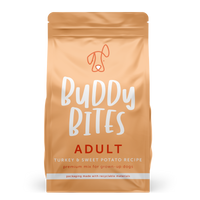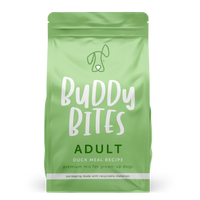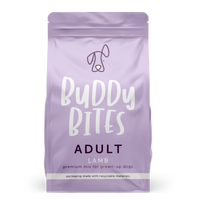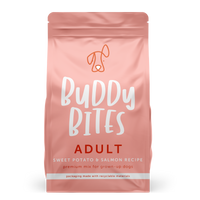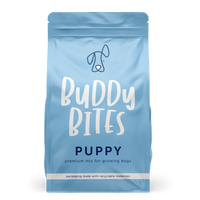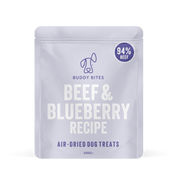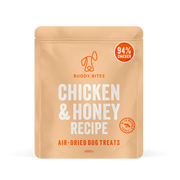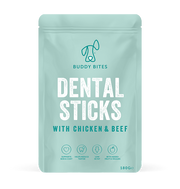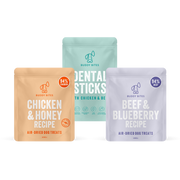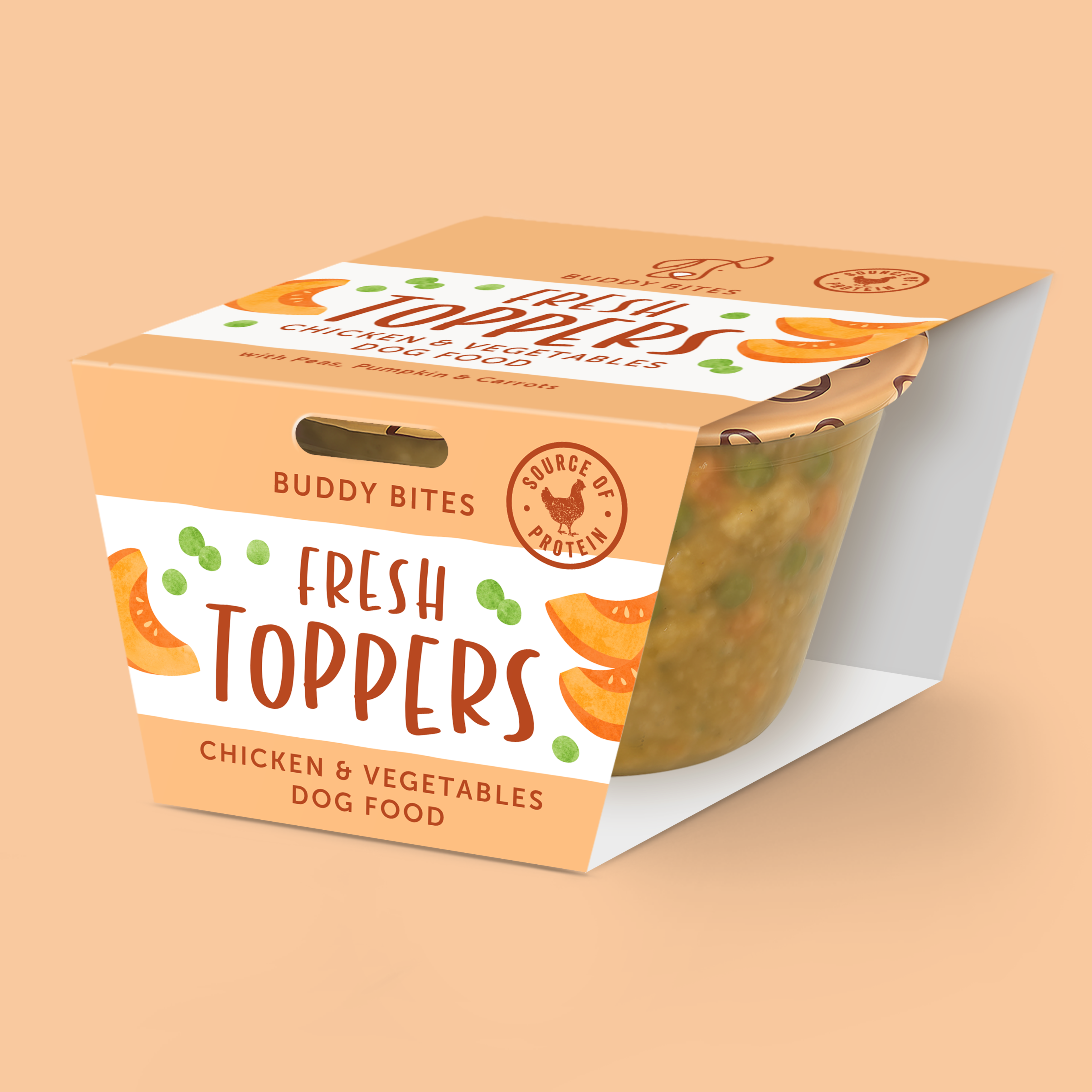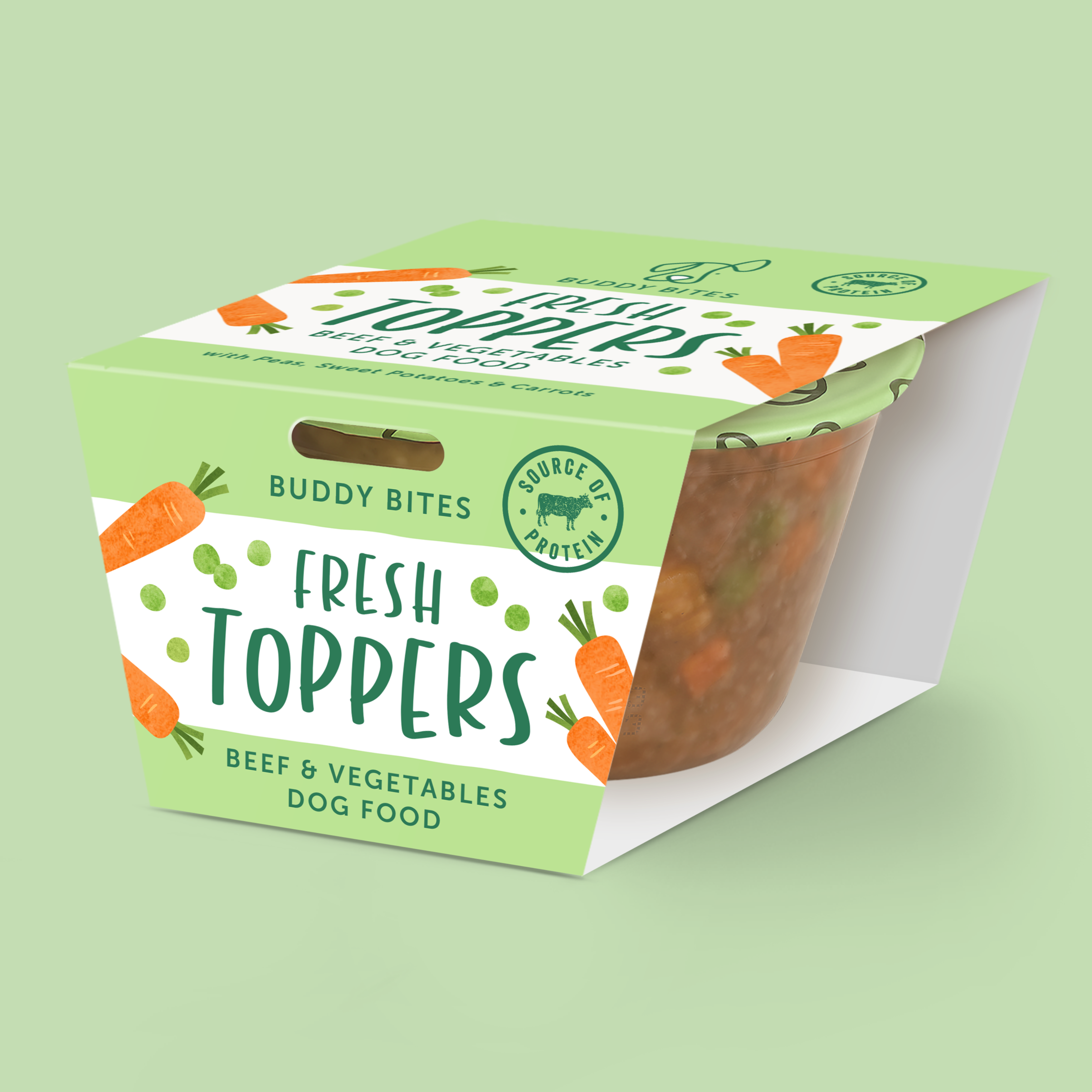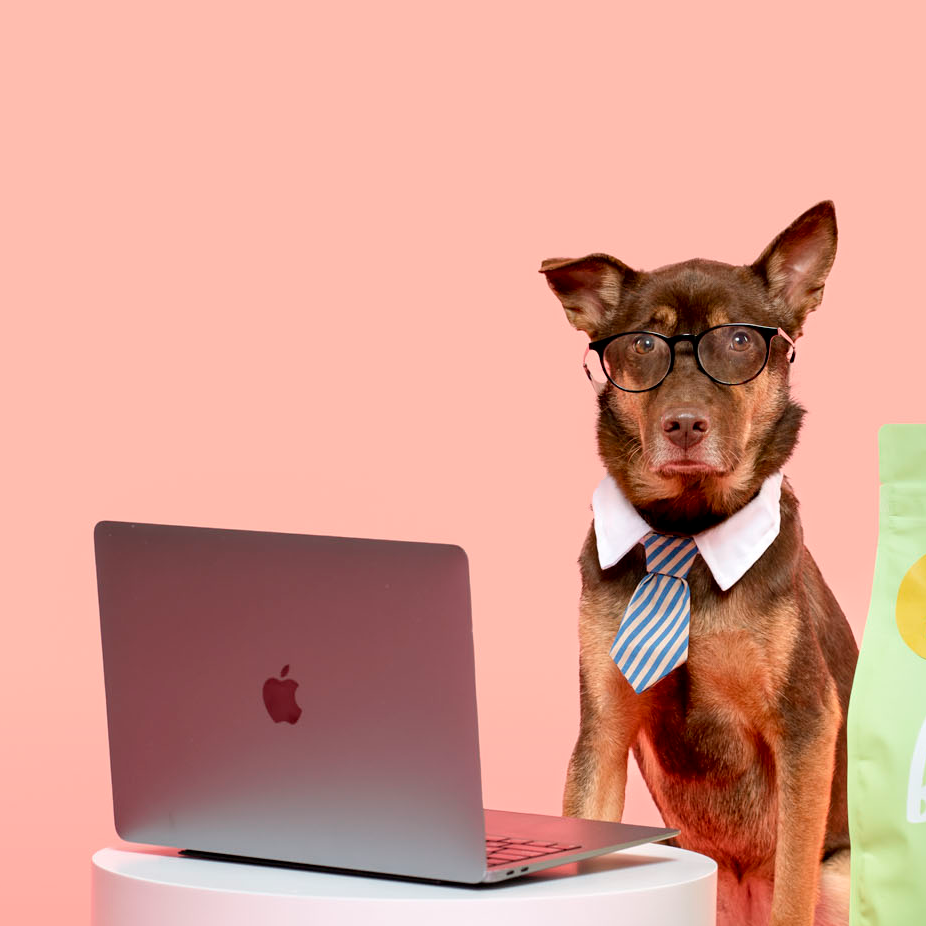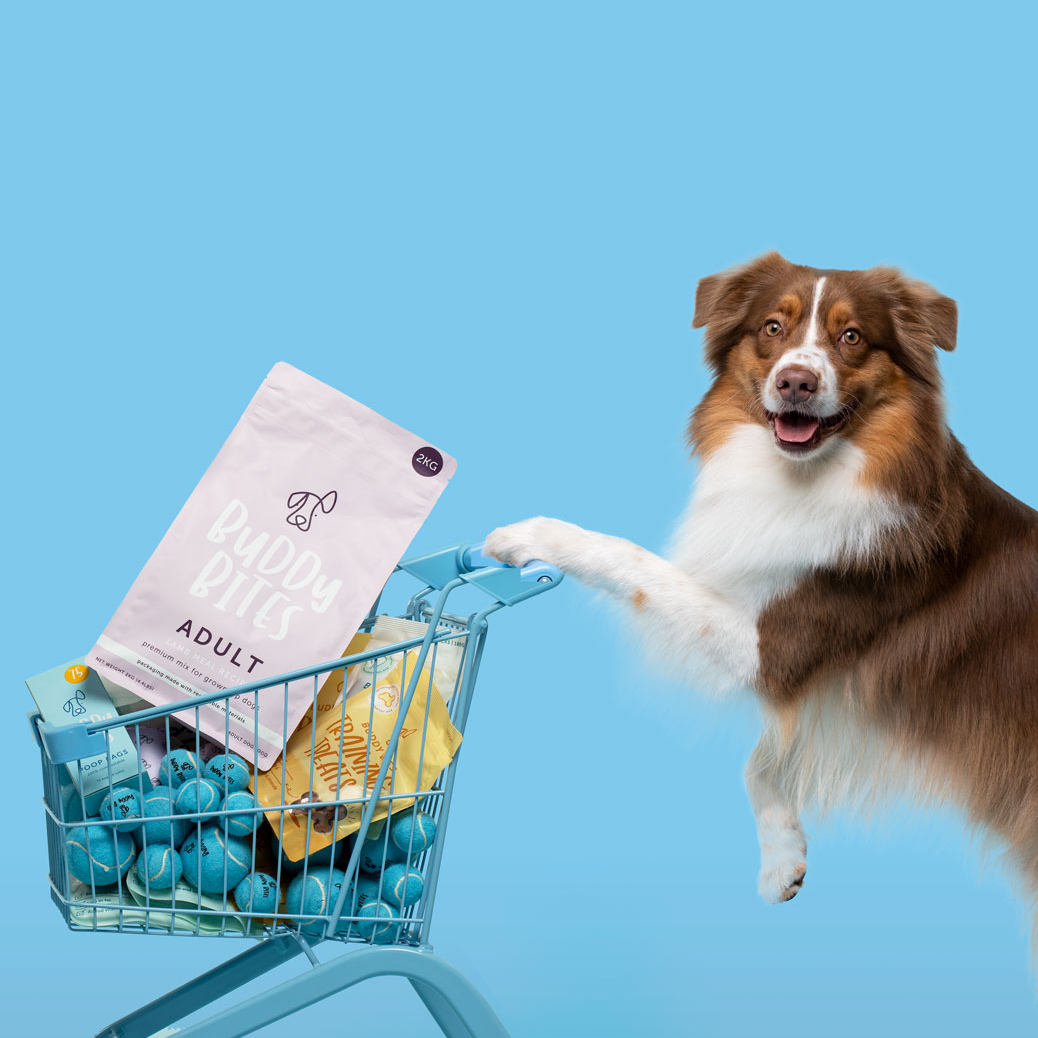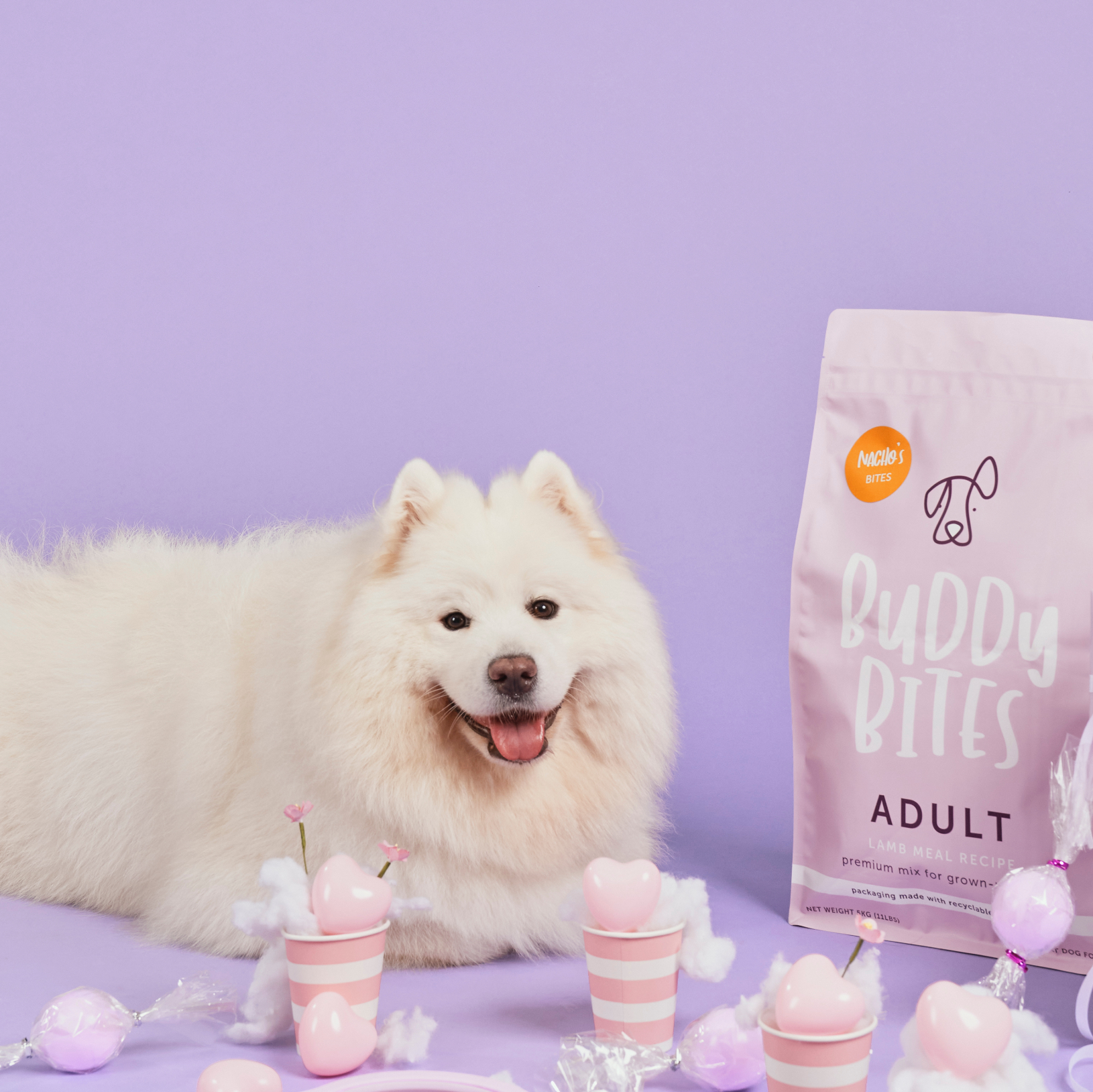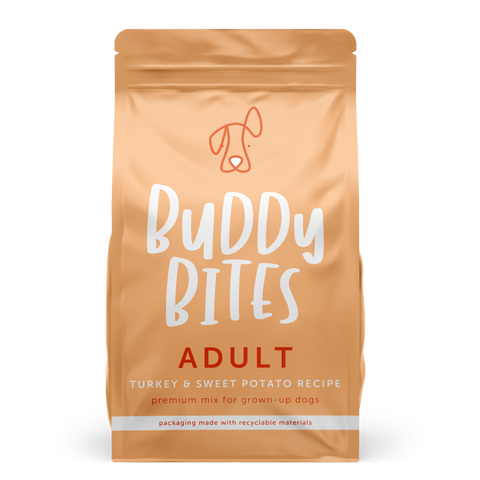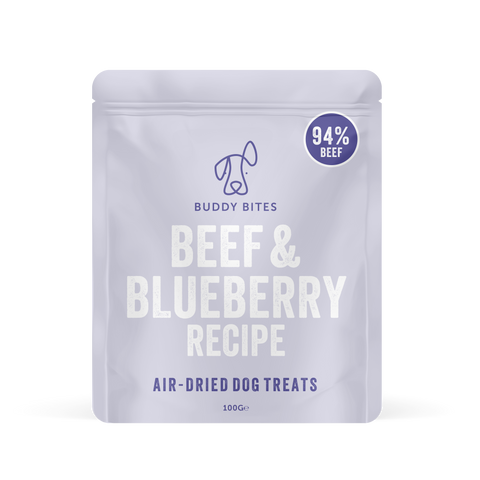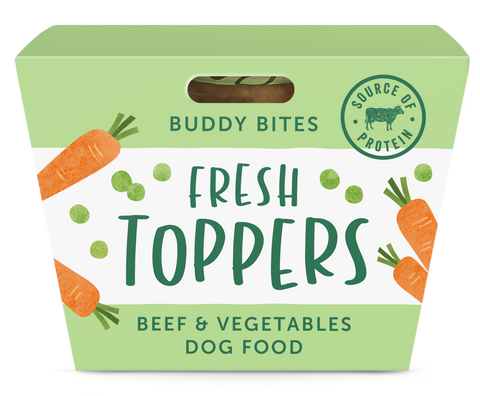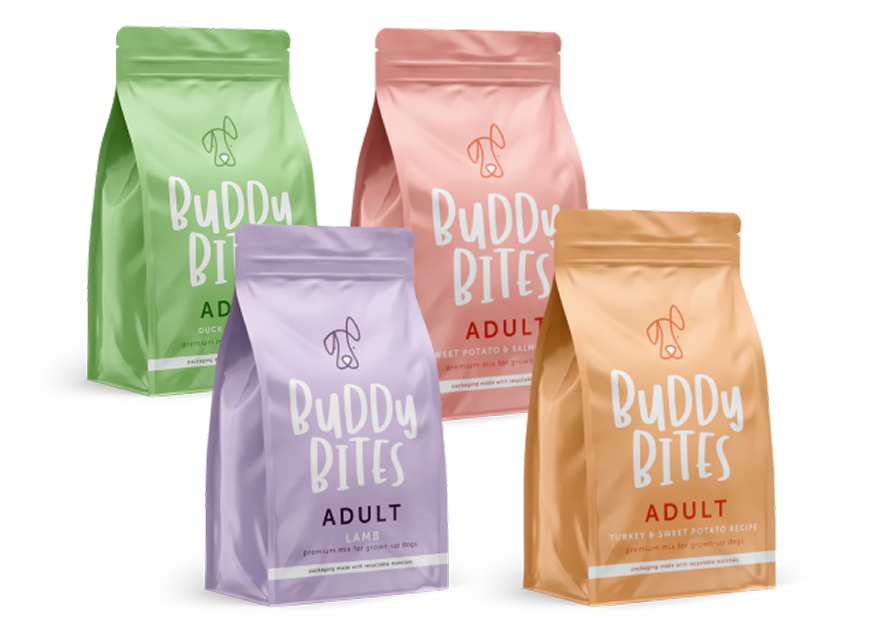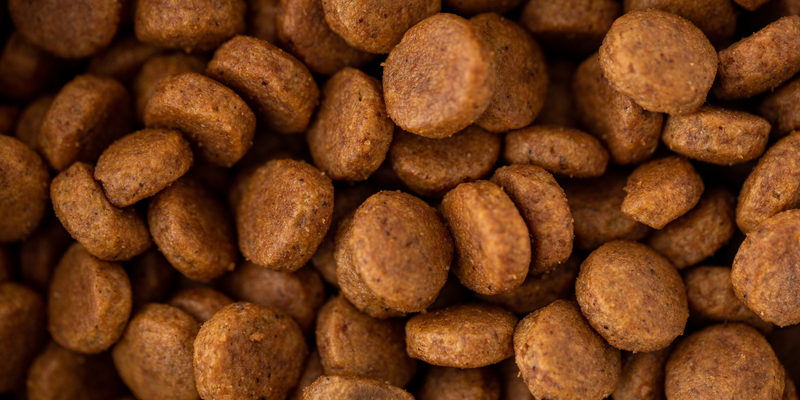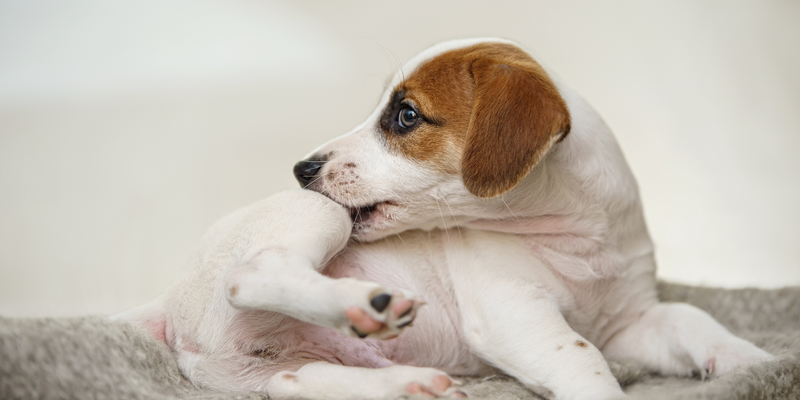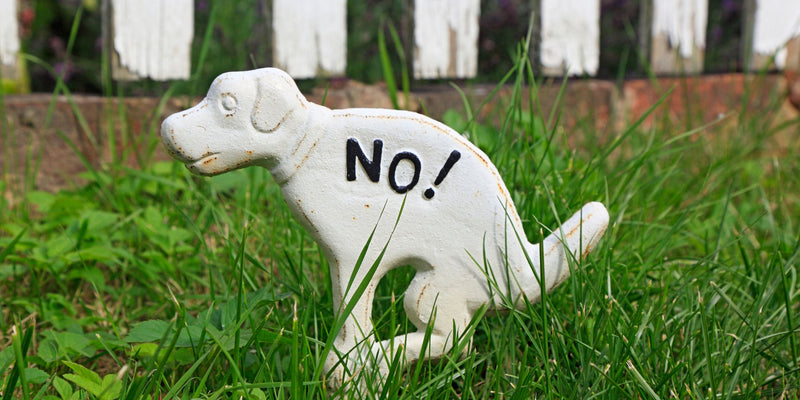Stinky Dog’s Bad Breath!
August 01, 2023
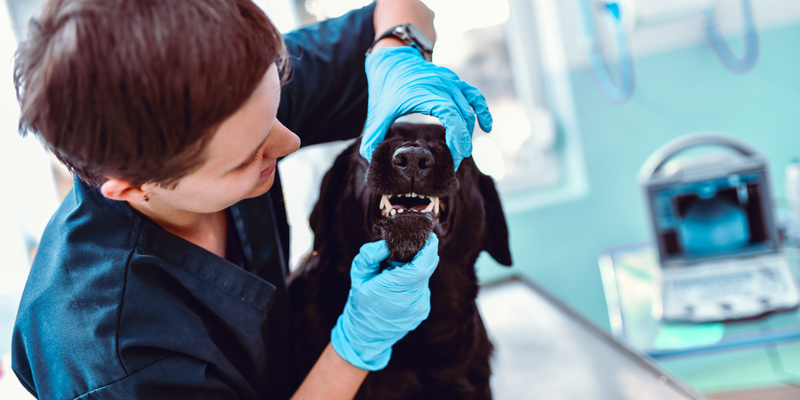
Dogs are known for their unconditional love and loyalty, but they are also known for their not-so-pleasant breath. Bad breath in dogs, also known as halitosis, is a common issue that many pet owners encounter. While it may seem like a minor inconvenience, bad breath can be an indication of underlying health problems that require attention. In this essay, we will explore the causes of dogs' bad breath, the solutions to combat it, and the importance of dental care, including the role of kibble and brushing teeth.
Causes of Dogs' Bad Breath:
- Poor Dental Hygiene: Just like humans, dogs can suffer from poor dental hygiene, leading to the buildup of plaque and tartar on their teeth. This buildup of bacteria can cause a foul odour in their breath.
- Dental Disease: Dental diseases such as periodontal disease and gingivitis are common in dogs. These conditions result from the inflammation of the gums and the surrounding structures, leading to infection and bad breath.
- Diet: Certain foods, especially those high in protein, can leave a lingering odour in a dog's mouth and contribute to bad breath.
- Gastrointestinal Issues: Bad breath can also be a sign of gastrointestinal problems, such as an upset stomach or the presence of intestinal parasites.
- Dental or Oral Infections: Infections in the mouth, such as abscesses or oral ulcers, can produce foul-smelling breath in dogs.
Solutions to Combat Bad Breath in Dogs:
- Regular Dental Check-ups: Schedule regular dental check-ups with your veterinarian to assess your dog's oral health. They can perform a thorough dental examination, clean your dog's teeth professionally, and address any dental issues.
-
Dental Treats and Chews: Dental treats and chews specifically designed to promote oral health can help reduce plaque and tartar buildup. They often contain ingredients that help scrape away debris from the teeth as dogs chew on them.

- Professional Teeth Cleaning: If your dog has significant plaque and tartar buildup, a professional teeth cleaning under anaesthesia may be necessary to remove the buildup and treat any underlying dental issues.
- Regular Brushing: Brushing your dog's teeth regularly with a dog-specific toothbrush and toothpaste is essential for maintaining good oral hygiene. Start slowly and gradually introduce tooth brushing into your dog's routine to make it a positive experience.
- Water Additives: Some water additives are formulated to help reduce plaque and freshen breath. Additives containing enzymes or antimicrobial agents can be beneficial in promoting oral health.

Role of Kibble in Dental Care:
Kibble is designed to support oral health. Especially those kibbles that are often larger in size or have a specific texture, which can help mechanically clean the teeth as dogs chew. The abrasive action of chewing the kibble can help reduce plaque and tartar buildup, leading to fresher breath and better oral hygiene.
The Importance of Brushing Teeth:
While kibble can be beneficial for dental care, it is essential to emphasise that it should not replace regular tooth brushing. Just like in human dental care, brushing is the most effective method to keep teeth clean and prevent dental issues. Dental care kibble can be a helpful supplement, but it does not reach all surfaces of the teeth or the gum line, where plaque and tartar are most likely to accumulate. Regular brushing, ideally daily or at least a few times a week, remains the gold standard for maintaining excellent dental health in dogs.
Bad breath in dogs is a common issue that can have multiple underlying causes, such as poor dental hygiene, dental disease, diet, and gastrointestinal problems. To combat bad breath, regular dental check-ups, dental treats and chews, professional teeth cleaning, and regular tooth brushing are all essential. Dental care kibble can play a supporting role in promoting oral health, but it should not replace the importance of regular brushing. By taking proactive measures to maintain your dog's oral health, you can ensure that their breath stays fresh, and they enjoy a healthy and happy life by your side.
